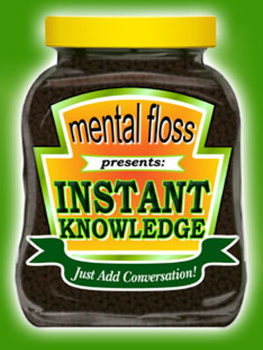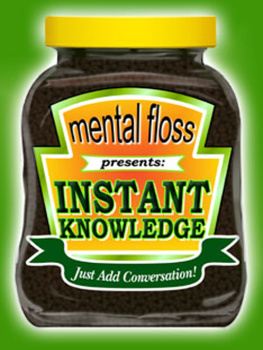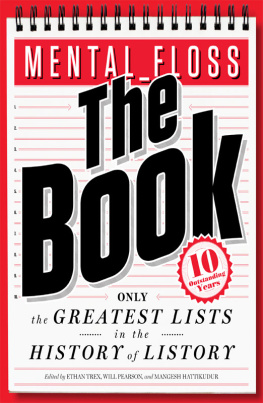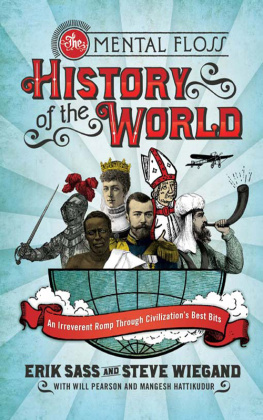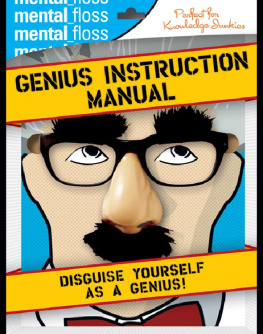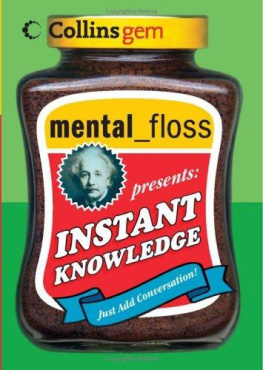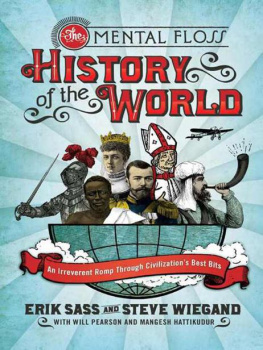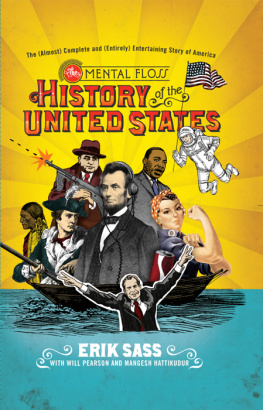Forewords vs. Prefaces
vs. Introductions
The other day, our editor called us and said that we needed to write something called a Preface to this book, which begged in our hearts important questions: What is a preface? Isnt that just the same thing as a foreword? And also, is that something our intern could do or is it something we need to do ourselves?
As it turns out, preface, foreword, and introduction are not synonyms. To quote The Chicago Manual of Style: A foreword is usually a statement by someone other than the author, sometimes an eminent person whose name can be carried on the title page. A preface, meanwhile, is written by the author, and often includes acknowledgments along with the reason that the person wrote the book. An introduction, unlike a preface or foreword, is required reading, because it is actually the beginning of the books narrative (in nonfiction, this is often historical background).
Anyway, we figured wed have all three.
The Foreword
Once in a great while, a book comes along that is not only funny and wise, but also genuinely important. Newtons Principia Mathematica . Or Darwins On the Origin of Species . It is my great pleasure to announce that another such book has entered the world. Whats the Difference? has taught me much that I did not previously know, like, for instance, the distinction between mayonnaise and Miracle Whip. Also, as I am Jewish, I never really understood the difference between a basilica and a cathedral. Now I do, and I am a better man for it. So thank you to the staff of mental _ floss . As a token of my appreciation, I am sending them the medal awarded me by the Nobel committee in 1921.
Forever in your debt,
Albert Einstein
The Preface
Now, were not going to say that our book Whats the Difference? has the power to heal the sick and raise the dead. All were saying is that Albert Einstein wrote our foreword. The preface is where we discuss why we chose to write this particular book. Aside from our burning desire to have Mr. Einstein recognize our work, we wanted to bring light where there is darkness, to bring clarity where there is confusion, and also to figure out the difference between Monet and Manet. We, as it happens, are married to an art historian (which we guess means that either our wife is a bigamist or we are using the royal we), and so Impressionism comes up a fair bit in our household. Before this book, we would always pronounce a clear muh and a clear nay whenever talking about either artist, but then in the middle we just used some weird vowel thats halfway between o and a in the hopes that our wife wouldnt notice that we are a total idiot.
So obviously this is an important book to read if you happen to be married to an art historian. But its also vital for many other peoplefor instance, those who may one day be attacked by huge furry creatures. With the help of this book, youll quickly be able to establish whether your assailant is a black bear, a grizzly, or a reincarnated Andre the Giant. But even if this book never saves your life, we guarantee youll feel smarter upon finishing it. (Note: That is not a money-back guarantee.)
The Intern
The Introduction
This, according to our completely infallible The Chicago Manual of Style, is supposed to contain only material essential to the text, material that should be read before the rest of the book, of which we have absolutely none. So you can just go ahead and turn the page now. Thanks, and enjoy.
Either nothing, or
John Green

Idiot vs. Moron
The Dilemma: You want to assail someones intelligence, but you dont know quite which word to use, which calls into question your own intellect.
People You Can Impress: Well, idiots and morons both, for starters. But also psychologists. And you really, really need to impress psychologists, becauseas youll seeyou dont want them to think youre an idiot.
The Quick Trick: These days, the words are completely synonymous. But back in the dark days of psychology (which is to say until about 30 years ago), there was a difference, and heres the quick trick psychologists used: Ask a question. If your subject answers, theyre a moron at worst. If they dont answer, you might have an idiot on your hands.
The Explanation:
Anyone who says that political correctness never accomplished anything worthwhile should take a long, hard look at the lot of the idiot.
In 1911, French psychologists Alfred Binet and Theodore Simon created the first modern intelligence test, which measured intelligence (hence the intelligence quotient) based on whether children could accomplish tasks like pointing to their nose (honestly) and counting pennies. The concept of IQ followed soon after, and psychologists fell so deeply in love with the scientific nature of the tests that they created classification systems. Any child with an IQ of above 70 was considered normal, while those with scores above 130 were considered gifted. To classify scores below 70, psychologists invented a nomenclature of retardation. Those with IQs between 51 and 70 were called morons. Morons had adequate learning skills to complete menial tasks and communicate. Imbeciles, with IQs between 26 and 50, never progressed past a mental age of about six. And the lowest of all were the idiots, with IQs between 0 and 25, who were characterized by poor motor skills, extremely limited communication, and little response to stimulus.
The moron/imbecile/idiot classifications remained popular, amazingly, until the early 1970s, when people started to note that the developmentally disabled have enough difficulties without being saddled with condescending labels.
Today the classification system is one category broader moron, imbecile, and idiot have been replaced with mild, moderate, severe, and profound retardation and diagnostic factors other than IQ are considered in making a diagnosis.
Good to Know
The doubly offensive term Mongolian idiot, which in the 19th and early 20th centuries was an actual, literal diagnosis, derives from peoples belief that individuals with Down syndromewith their wide-set eyes and round facesresembled Mongolians. In fact, before the British physician J.H.L. Down (18281896) lent his name to the chromosomal syndrome, Down syndrome was known merely as mongolism.


